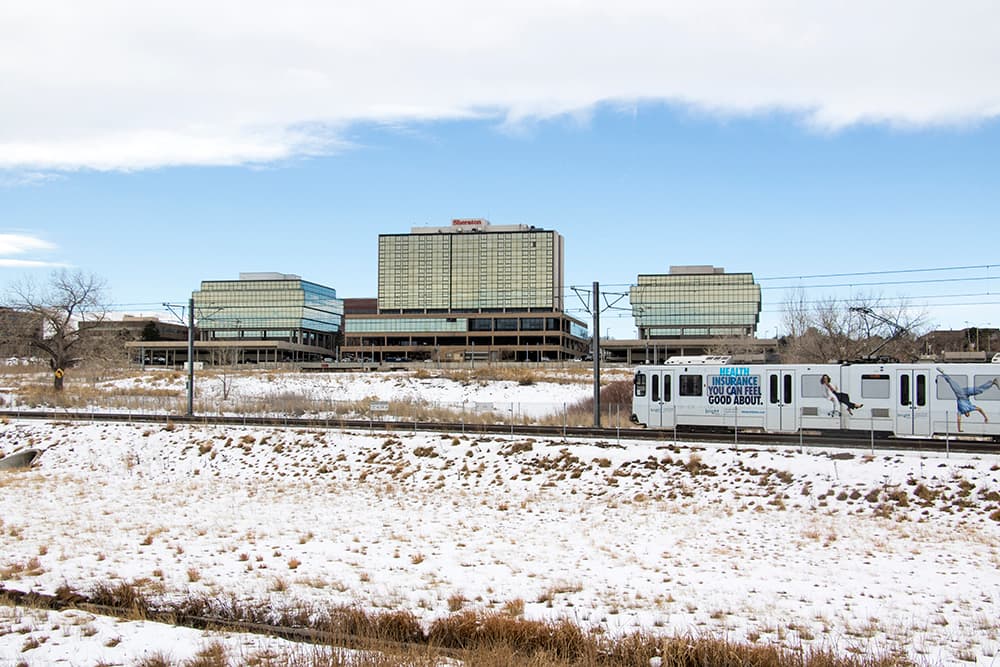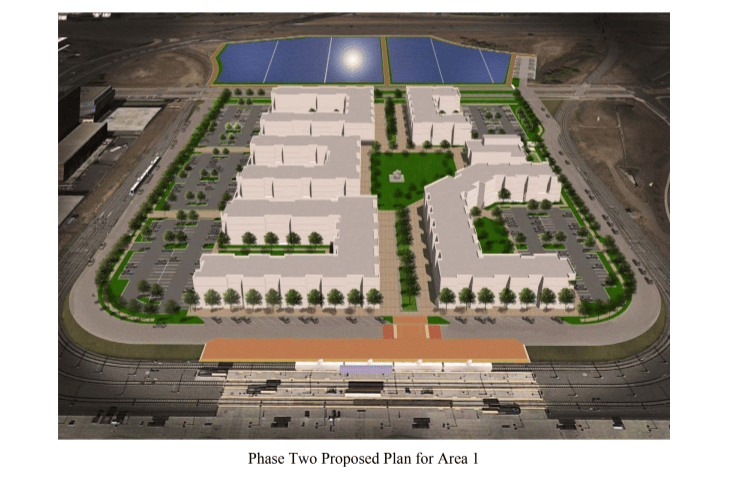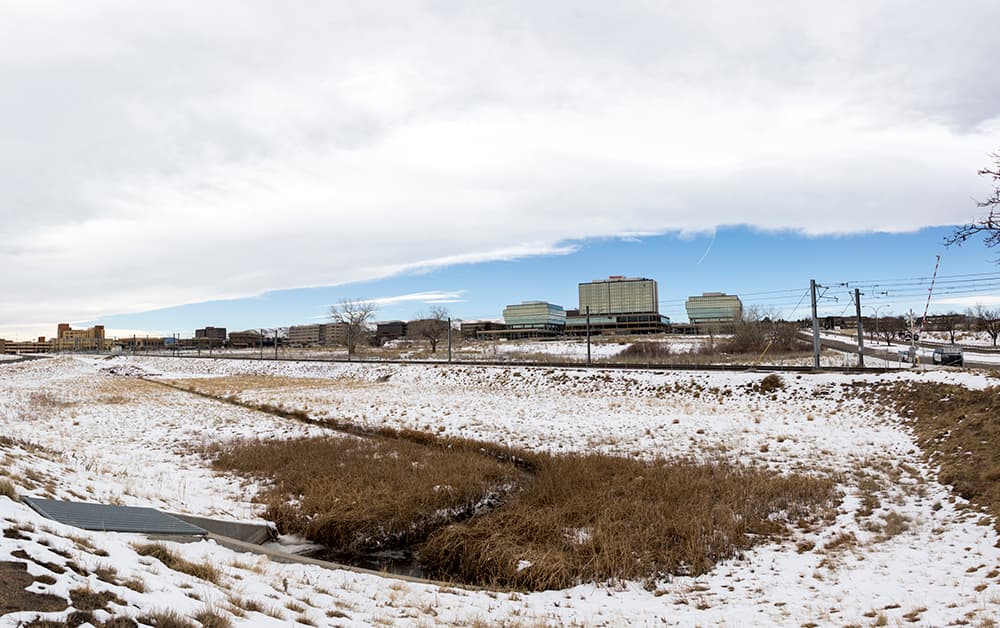
The federal government has rejected a key element in a Colorado nonprofit's plan to build hundreds of housing units on vacant land at Federal Center in Lakewood, according to Mayor Adam Paul.
"Application DENIED." he wrote in a lengthier Facebook post on Monday night.
The Colorado Coalition for the Homeless had proposed a community that would evolve from temporary structures to 600 permanent supportive homes for people exiting homelessness.
The project was meant to be built on federal land near a rail station. Now, the U.S. Department of Health and Human Services has "denied the request of the Colorado Coalition for the Homeless to acquire this property for its use," according to an email provided by the mayor.
The government specifically rejected the nonprofit's financial plan to build the community, according to Cathy Alderman, a vice president with CCH. The financial plan has not been released to the public.
This is a significant reversal in a long-running fight, and the nonprofit plans to keep pushing for the land.
"We are obviously very disappointed by the HHS decision. We believe HHS erred in its decision based on the law and the facts. If there is not an adequate appeals process, we will likely be going back to court to protect rights of people experiencing homelessness in Lakewood and Jefferson County," Alderman wrote in an email to Denverite.

The legal battle:
The feds had tried to sell the 59-acre site in 2017 to developers for “mixed-use and market-rate residential development, according to CCH.
The nonprofit successfully sued to pause the sale, saying that the McKinney-Vento Homeless Assistance Act obligated the government to make the land available for homeless services. The feds agreed in September that the property was suitable to serve people experiencing homelessness, according to CCH.
It's unclear why HHS rejected CCH's financial plan for the property.
Some Lakewood residents, and Mayor Paul, had objected to the fact that they had little influence over the proposed project. Since it's on federal land, the local government has little authority to limit its development.
Local resistance:
A Facebook group against the proposal rapidly picked up nearly 1,000 followers, while a petition against it collected 3,000 signatures, according to organizer Ronda Frazier.
"Instead of a plan they had worked on for a long time and it was coming to fruition, this was the exact opposite," she said. She argued in an interview last month that the plan didn't align with modern practices for building low-income housing communities.
"That’s not the new philosophy about this type of housing. It’s to put smaller complexes and sprinkle them out through the area so people can assimilate into the community," she said, also citing concerns that the proposed community could bring increased crime and substance use.
"The property that we’re talking about is in the heart of a biz district. That Union (Boulevard) corridor is just exploding with businesses and some residential, some mixed use," she said.
CCH, meanwhile, had described the proposal as a cost-effective way to build hundreds of much-needed housing units for people with few other choices. Under federal law, they could have gotten a 20-year lease to the land for no cost.
A federal government website currently declares that an auction of the land is "Coming Soon!" The site was updated on Monday, but it's unclear what changed. The federal General Services Administration plans to release more information in the near future, according to Paul.
A few hours after announcing the denial, Paul's account followed up with this message: "Its important to note that the denial of the CCH's proposal does not deny the fact that we have homeless in our community. Let's use this experience to start the conversation of how we come together as neighbors, as a city, as a county to find meaningful solutions to help those in need."












